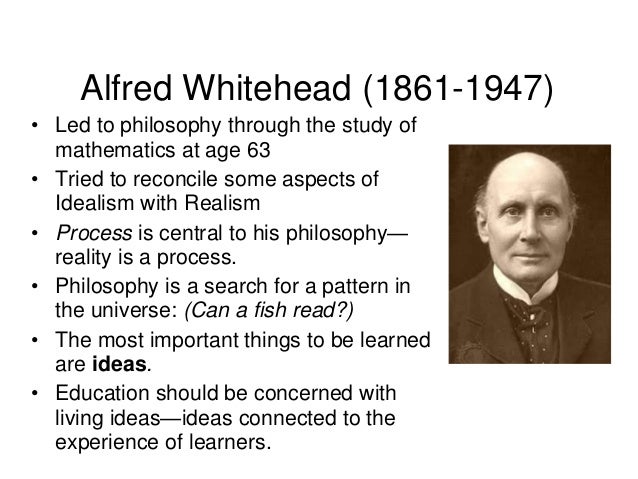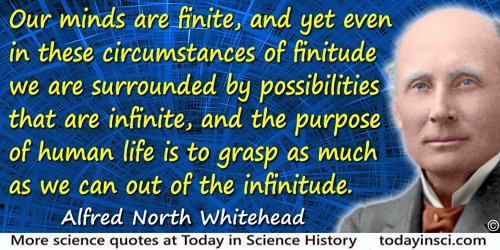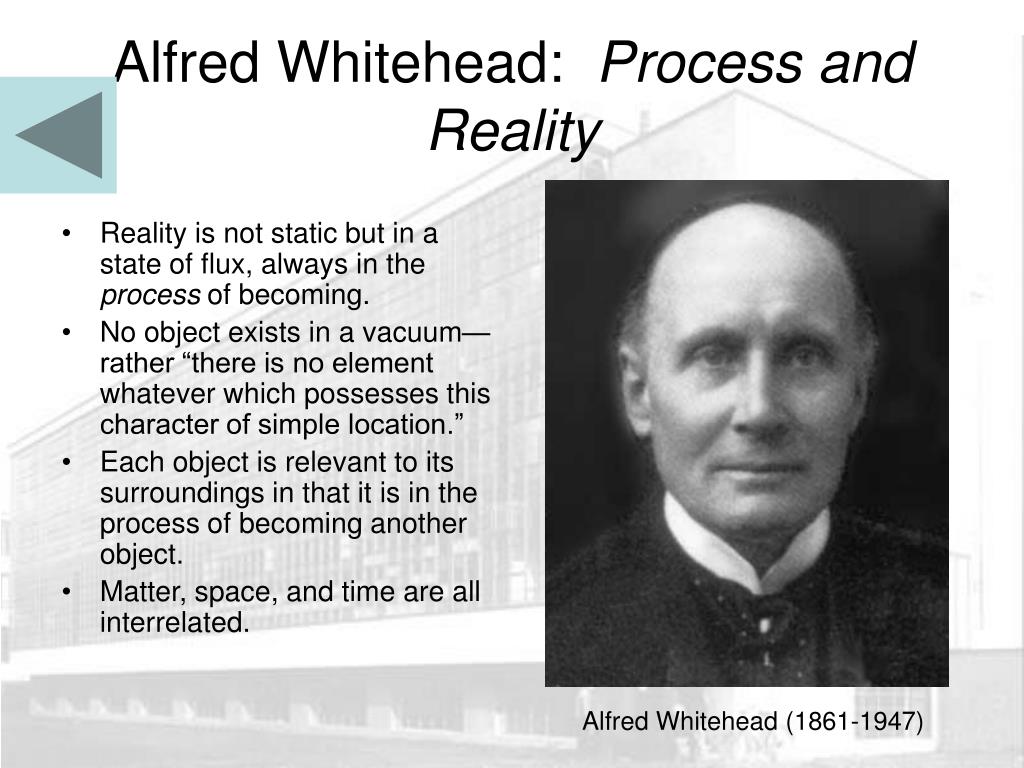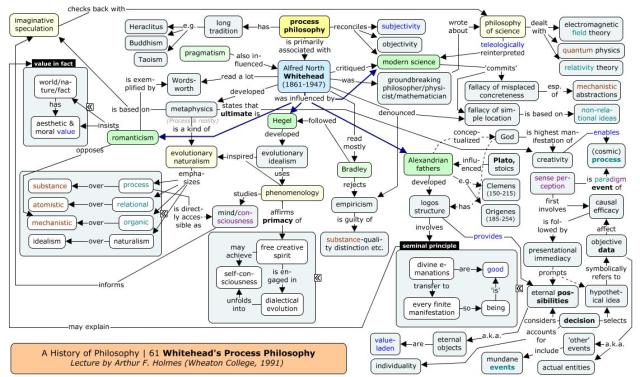
The Index provided here on Process Thought is not exhaustive. To date there are 80+ articles listed in this index by category out of many, many more which could have been listed from this website which are still remaining to be tagged. To these articles other possible related subjects (found in the topical column on the right side of the website) could have been listed, such as open and relational (process) theology, process-based: divine sovereignty, providence, eschatology, sin, ecotheology, evolution, quantum sciences and technologies, life applications, faith applications, and on and on as the subject of Whiteheadian process thought is very deep. Yet this new index at least gives the novice and intermediate lay person familiarity with process thought in its religious, humanitarian, and ecological outreach and direction with enough educational acumen to continue exploring the subject capably on one's own.
Not so long ago I found stagnancy in the classical expression of my Reformed (Baptist) faith as it began to clash with what I had been taught as the "only-and-truest fundamentals of the Christian faith and its doctrine". Specifically, that Jesus is the standard around which all Christian beliefs and ethos practices revolve. Anything less is a prevarication of the Christian faith as it is understood through God's love and salvation. I had belatedly come to realize a decade or two back that those "fundamental ideas and teachings" of my past needed to be "fundamentally" re-envisioned through the lenses of a contemporary cultural, and societal, Christian expression (but importantly without Christian legalism and religiosity). Curiously, when undertaking this complex endeavor to re-appropriate my ancient creedal faith, I didn't expect to lose the gospel of Jesus as I began to intentionally re-actualize Christianity into contemporary societal terms applying post-structural ideas to the subject matters of God, the Bible, Jesus, salvation, sin or the future. On the contrary, by carefully deconstructing Christianity's modernity teachings - then reconstructing Christianity's postmodernity expressions back again - the gospel became clearer than before. It's surprising how cleaning up one's theologic windshield of bug-guts and splattered mud can help the weary driver see the Jesus-road before him so much more clearly!
Certainly, when undertaking this daunting task I realized it would upend all of the old creeds of the church and doctrines as I applied newer, more relevant, theologic language, concepts, and contemporary perspectives to traditional Christianity. The result of this singular vision which the Holy Spirit had years ago burdened my soul to move through was a very long, complex, and rigorous application of redefining my fundamental baptist and later, conservative-evangelical faith heritage, with an updated emergent (progressive) faith stream which I am much more at ease with in its substance and Christian direction than I would've been as a youth just starting out. Lastly, into all of this I am now adding a new Christian foundation known as Process Philosophy and Theology to give all substance and structure. Age and maturity goes a long ways to re-envisioning one's faith. Inasmuch as doubt and uncertainty have properly led my postmodern explorations of faith and the bible I believe those same attitudes used in the formation of scientific theory will continue to assist in leading me forward towards more relevant and missional ideas of the love of God, His divine will for our lives, and how Christ's atoning work is bringing all back together in a fundamental restructuring of mankind and creation. Enjoy. This has not been an easy task of sorting out or rebuilding.
R.E. Slater
April 13, 2020
Index to Process Philosophy & Theology
 |
| Alfred North Whitehead |
A General List of Process Articles
Tuesday, May 4, 2021
Recent Process Articles
Sunday, February 13, 2022
Wednesday, March 30, 2022
Tuesday, October 26, 2021
Wednesday, September 8, 2021
Thursday, August 26, 2021
How An Evangelical Christian Gained A Processual World View <-- Recommended
Thursday, July 1, 2021
Whitehead's Process Speculation about Multiverses before there was SpeculationFriday, July 2, 2021
The Perfect Marriage Between Process Theology & Natural Theology <-- Recommended
Wednesday, June 9, 2021
R.E. Slater - The Wheel or the Anvil? <-- Recommended
Tuesday, June 8, 2021
Thursday, April 29, 2021
Saturday, April 17, 2021
Tuesday, March 30, 2021
Friday, March 12, 2021
What A Process God of Mystery Might Mean <-- recommended
Wednesday, February 17, 2021
Relational Theology. What Is It? <-- recommended
Wednesday, February 10, 2021
Friday, April 17, 2020
PROCESS & REALITY: A 7-PART SERIES
Introduction to Process Philosophy
Marjorie Hewitt Suchocki - "What Is PROCESS Theology?" <-- Recommended
Marjorie Suchocki - The Heart of Process Theology <-- Recommended
R.E. Slater - Envisioning a Process Relational Theology <-- Recommended
What is process philosophy and Who is Alfred North Whitehead? <-- Recommended
Marjorie Hewitt Suchocki - "What Is Process Theology? <-- Recommended
R.E. Slater - Twenty Key Ideas in Process Thought <-- Recommended
Process Studies - Introduction To Process Philosophy <-- Recommended
Alfred North Whitehead's Process & Reality
October 9, 2021
Alfred North Whitehead's Philosophy of Organism <-- Recommended
R.E. Slater - Envisioning a Process Relational Theology <-- Recommended
John B. Cobb - Understanding Whitehead <-- Recommended
John Cobb - Introduction to Whitehead's Process & Reality <-- Recommended
John Cobb - Whitehead's Process & Reality, IV Lecture
John Cobb - Whitehead's Process & Reality, IV - Class Discussions
John Cobb - Whitehead's Process & Reality, V Lecture
John Cobb - Whitehead's Process & Reality, V - Class Discussions
John Cobb - Whitehead's Process & Reality, VI Lecture
John Cobb - Whitehead's Process & Reality, VI - Class Discussions
Critiques of Whitehead & Process Philosophy
 |
| John Cobb, Jr. |
Process Theologican - John Cobb, Jr.
Thursday, November 11, 2021
Wednesday, November 17, 2021
Tuesday, November 9, 2021
Friday, September 10, 2021
Saturday, July 10, 2021
Process Theologian - Charles Hartshorne
Sunday, August 30, 2020
Process Theology - The Life and Philosophy Of Charles Hartshorne
Sunday, August 30, 2020
Process Theology - Review of Charles Hartshone
Sunday, August 30, 2020
Process Theology - SEP: Charles Hartshorne
Sunday, August 30, 2020
Process Theology - SEP:Process Theism
Meet the Process Theologians
Friday, May 28, 2021
Thursday, May 27, 2021
Friday, May 28, 2021
The Future of Process Philosophy
Catherine Keller - Process, Poetry & Post-Structuralism
Bruce Epperly - The Future of Process Theology
Is Process Theology Postmodern?
Seeking a Postmodern Re-definition of Classic Theism
What Is Process Theology? by Robert B. Mellert
Robert B. Mellert - What Is Process Theology: Preface, Chapters 1 & 2
Robert B. Mellert - What Is Process Theology: Preface, Chapters 3 & 4
Robert B. Mellert - What Is Process Theology: Preface, Chapters 5 & 6
Robert B. Mellert - What Is Process Theology: Preface, Chapters 7 & 8
Robert B. Mellert - What Is Process Theology: Preface, Chapters 9 & 10
Robert B. Mellert - What Is Process Theology: Preface, Chapters 11 & 12
 |
| Bruce Epperly |
 |
| Tripp Fuller |
Intersection Process Philosophy with Process Theology
*Related Topics: Open & Relational Theism; Sovereignty; Providence; Evolution
Catherine Keller - On Entanglement, Interconnectedness & Synchronicity
How Panentheism Differs from Other Theistic Systems of God + Creation
Describing Relational, Process-based, Panentheism
Thomas Jay Oord - Process and Wesleyan Theologies
Thomas Jay Oord - Where Do Open and Process Theologies Blur?
Thomas Jay Oord - What Does a God-in-Process Mean in relation to Providence?
Bruce Epperly - The Process Theologian's "Bonhoeffer"
Process Theology - "Divine Action, Indeterminacy, and Dipolarism"
Critiques of Process Theology
Roger Olson - Can Relational Theism Overcome the Ills of both Process Theology and Classical (Evangelic) Dogma? Part I of 2
Roger Olson - Can Relational Theism Overcome the Ills of both Process Theology and Classical (Evangelic) Dogma? Part 2 of 2
So what’s wrong with panentheism?
The Science Behind "Creatio Continua" versus "Creatio Ex Nihilo" (Process v. Classical Thought)
Philip Clayton's talks about Process Theology - "No One Gets to Capture the Flag Around Here"
Contemporary Process Theology & Social Justice
Process Theology & Martin Luther King, Jr.
Jay McDaniel - Why the God of Process Theology is Like Marian Anderson's Courageous Voice Crying in the Wilderness
Why Process Philosophy Might Present a Better Form of a Liberal Democracy or Socialism
Jay McDaniel - Process Pluralism as an Antidote to Hate
Contemporary Process Theology & EcoTheology
R.E. Slater - The Holy Trilogy: Process Theology, EcoTheology & TheoPoetics
Ecotheology and Ecological Civilizations: An Overview of Ideas and Practices
Contemporary Process Theology for Contemporary Living
Process Theology: The Peace of Uncertainty
Bruce Epperly - The Process Theologian's "Bonhoeffer"
Process Theology - "Divine Action, Indeterminacy, and Dipolarism"
Critiques of Process Theology
Roger Olson - Can Relational Theism Overcome the Ills of both Process Theology and Classical (Evangelic) Dogma? Part I of 2
Roger Olson - Can Relational Theism Overcome the Ills of both Process Theology and Classical (Evangelic) Dogma? Part 2 of 2
So what’s wrong with panentheism?
The Science Behind "Creatio Continua" versus "Creatio Ex Nihilo" (Process v. Classical Thought)
Philip Clayton's talks about Process Theology - "No One Gets to Capture the Flag Around Here"
 |
| Tripp Fuller |
Contemporary Process Theology & Social Justice
Process Theology & Martin Luther King, Jr.
Jay McDaniel - Why the God of Process Theology is Like Marian Anderson's Courageous Voice Crying in the Wilderness
Why Process Philosophy Might Present a Better Form of a Liberal Democracy or Socialism
Jay McDaniel - Process Pluralism as an Antidote to Hate
Contemporary Process Theology & EcoTheology
R.E. Slater - The Holy Trilogy: Process Theology, EcoTheology & TheoPoetics
Ecotheology and Ecological Civilizations: An Overview of Ideas and Practices
Contemporary Process Theology for Contemporary Living
Process Theology: The Peace of Uncertainty
x
Process Science & Evolution



































